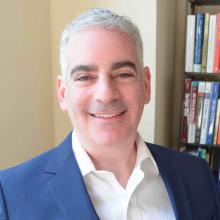
ADAA sits down with ADAA Member Paul Greene, PhD to discuss the many aspects of trauma: what it is, how it’s different from PTSD and stress, and how to get help if suffering from a traumatic experience.
What is trauma?
Dr. Greene: Trauma is a stressful or disturbing exposure to a very stressful thing; actual or threatened death, serious injury, sexual violence, or sexual assaults. People experience (trauma) even if it doesn't happen to them— (such as) learning about something similarly traumatic that's happened to a close family member or friend. Or, in some cases, being exposed to certain aspects of a traumatic event. For example, if part of your job involves dealing with body parts or cleanup after some kind of mass casualty event, even that can be traumatizing. Those are a few different ways that trauma can look.
There are a lot of different ways that someone can experience trauma and the way it may be defined. How does this differ from stress?
Dr. Greene: Stress is anything that puts a demand on you. Throughout the animal kingdom, any kind of demand that's put on an organism can be defined as a stressor. So, if there's an animal that is running out of food, that's a stressor. And if you need to leave the house, and you can't find your keys, that's a stressor. But neither of these things would be a trauma. Certainly, we can define a traumatic event as a stressor, but it is, in my opinion, qualitatively and quantitatively different than most of the stressors we experience day to day and week to week.
Do all trauma victims experience PTSD?
Dr. Greene: No, they don't. Often, I think it's assumed that if someone experiences a traumatic event, like September 11 for example, that they will end up with PTSD. But it's not always the case. There are a lot of factors that go into determining whether someone develops PTSD after (a traumatic event) or not. In fact, I believe the majority of folks that experienced a traumatic event do not develop post-traumatic stress disorder, but many of them will.
Listen to the full podcast for more...
*If you or someone you know is suffering from a traumatic experience or PTSD, reach out to a licensed healthcare professional.






